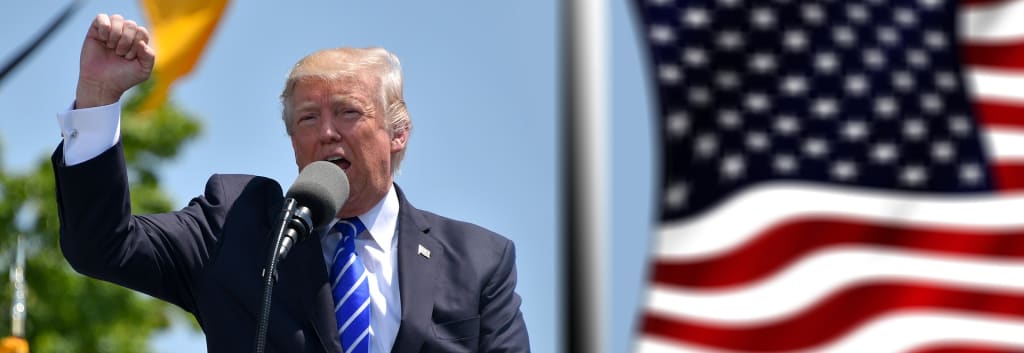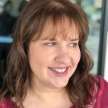I Didn’t Think I Was Racist When I Voted for Trump. Then I Woke Up.
How I’m working to be part of the solution.

Our beliefs are a result of our family values, upbringing, life experiences, and learning. That doesn't mean they can't change. Mine are.
In 2016 my world turned upside down when, during an early morning bike ride, my husband Patrick was killed.
That year I didn't care about the presidential election. I'd been a life-long Republican, and the GOP party lines had generally matched my beliefs. So, struggling with loss and grief, I put very little thought into it and voted along those party lines. I voted for Donald Trump.
I liked the idea of changing up politics and I believed a fresh look from a business viewpoint might be just what we needed. I also assumed once he was in office, Donald Trump would be presidential and rely on experts to guide policy. Looking back, I did not consider what kind of person I was voting for.
Eight years earlier I'd been more involved. Back then I had what I considered a friendly, ongoing debate with a Black coworker who supported Barack Obama. I supported John McCain, but the day after the election I congratulated my coworker on his candidate winning. Even though I'd voted for McCain, I was okay with Obama winning. I thought electing the first Black president was an important step for our country and I believed - and still do - that Barack Obama was a good person. And, to be honest, I looked forward to my party not being blamed for everything wrong in the world. At the time, I did not consider my voting choices - against Obama, for Trump - as motivated by race. It turns out I had a lot to learn; about racism, about myself, and about my choices.
In the fall of 2016, just before the election, I also started my education as a Professional Clinical Counselor. Imagine my surprise when I realized counseling was a mostly liberal profession. I found myself in classes and programs alongside mostly liberal classmates and instructors and exploring topics that had very liberal themes.
Part of becoming a counselor is getting intimately familiar with your own personal biases. This can be a very difficult process. In my cultural diversity class, I was given an assignment to write about my biases and was not allowed to say I wasn't biased. When forced to reflect on my beliefs, I was not proud of what I saw. All my life, I'd denied being racist but upon deeper reflection, I began to realize some of my denials, if not racist, were ignorant and offensive to minorities.
~I learned that having biracial relatives doesn't prove I'm not racist.
~Having minority friends doesn't prove I'm not racist.
~Being kind to minorities doesn't prove I'm not racist.
~And I learned that accepting the privilege I was born into and not speaking
out against racism could be considered racist.
During the class, I found myself thinking about a past incident with one of my closest friends, Lisa, a 6-foot tall Black woman. She's a huge Los Angeles Lakers fan, and I've attended a few games with her. One night we found ourselves looking for parking before a game and ended up in what I thought of as a "sketchy" neighborhood. I remarked to Lisa that I was glad I was with her. Lisa looked at me like I was crazy and laughed, replying along the lines of, "You think I can protect you because I'm Black? I'm scared too!"
I want to believe Lisa forgave me, but I've never asked. I realize it was probably just one smaller occurrence in a long line of racism she's experienced. I feel I'm basically a good person and I think she would agree, but that doesn't excuse my racist behavior.
My diversity class also taught me about microaggressions. If you find it hard to acknowledge that you've been racist, maybe you can at least acknowledge that you've been guilty of these "indirect, subtle, or unintentional discriminations."
I realize now that, at the very least, my interaction with my friend Lisa was a microaggression. Other microaggressions include my saying I can't be racist because I have Black friends and relatives, or that "all lives matter". (This Vox article explains why saying "All lives matter" is a problem.)
While working on that personal-biases assignment, I found this essay: "White Privilege: Unpacking the Invisible Knapsack," by Peggy McIntosh. This article is available through the National Seed Project. I truly believe the article changed my life - after reading it, I finally understood the privileges I have that I haven't earned but got simply by being white.
I think this concept is so difficult for fellow white people to accept because it changes our whole identity. For example:
I used to say that I did not condone slavery and didn't understand why Blacks felt mistreated when slavery was so far in the past.
I was annoyed when police officers were questioned for simply doing their job. I believed that law-abiding citizens would never be mistaken for criminals.
I believed that most police killings were the result of the victims' criminal behavior.
When I read the white privilege essay, some of my beliefs changed immediately. Others have changed over time as I continue to reflect on them and adjust my thinking and behavior accordingly.
It's not always easy. We want to believe the best about ourselves and often tell ourselves stories about who we think we are. Changing those stories and how we see ourselves can be a challenge. It will never be perfect - I will never be perfect - but I want to keep trying. And working on personal growth and change is only the start of the journey. We also need to carry that hard work into our communities and our nation.
Probably the biggest reason for my change is watching my nephew and two nieces, who are half-Black, become adults. I was blind to the racism they experienced as children growing up in our suburban, majority-white city. (I wrote about it in One Town, Alternate Realities.) My niece, Shayna Danell Boyles, summed it up in a Facebook post I find inspiring and motivational:
"Even when it feels like the world has stopped spinning, racism is alive and well. If you're not doing your part to actively combat racism, you are the problem. If you see an act of racism and passively allow it to happen, you are the problem. if you're not actively working towards dismantling the system that is TODAY killing people of color, you're standing directly in the way of progress, and it's time to move." Shayna Danell Boyles
---
This article was originally published on Medium.com as part of Progressively Speaking's series "Change Happens" by and about individuals who have altered their opinions and become significantly more progressive over time.
About the Creator
Danell Boyles TeNyenhuis Black
I began writing after my late husband's death in 2016. I created a blog, My Life After Patrick to write about my experience and how I was moving forward. In the five years since then I have finished my Masters in Counseling and remarried.






Comments
There are no comments for this story
Be the first to respond and start the conversation.